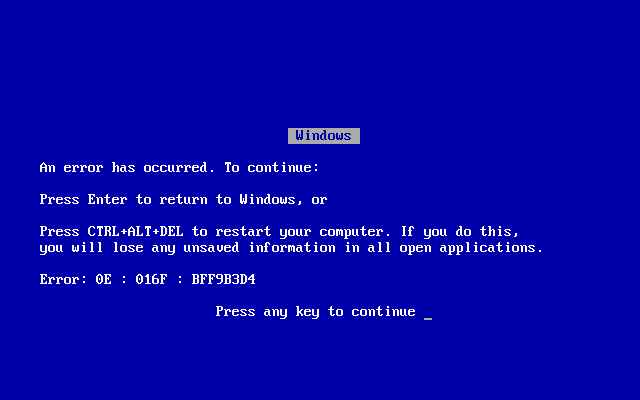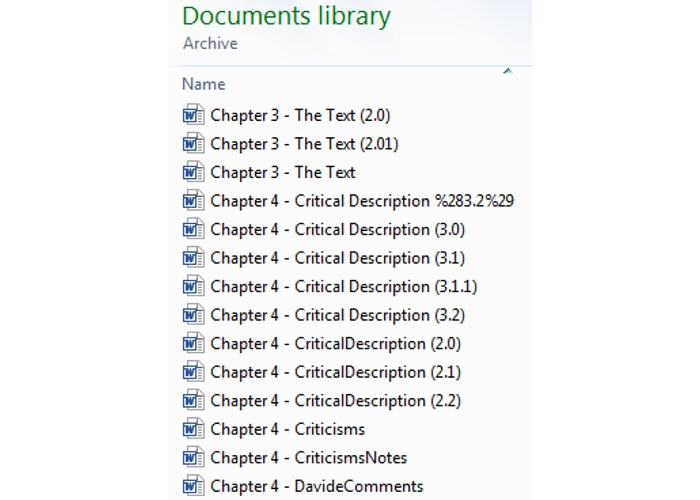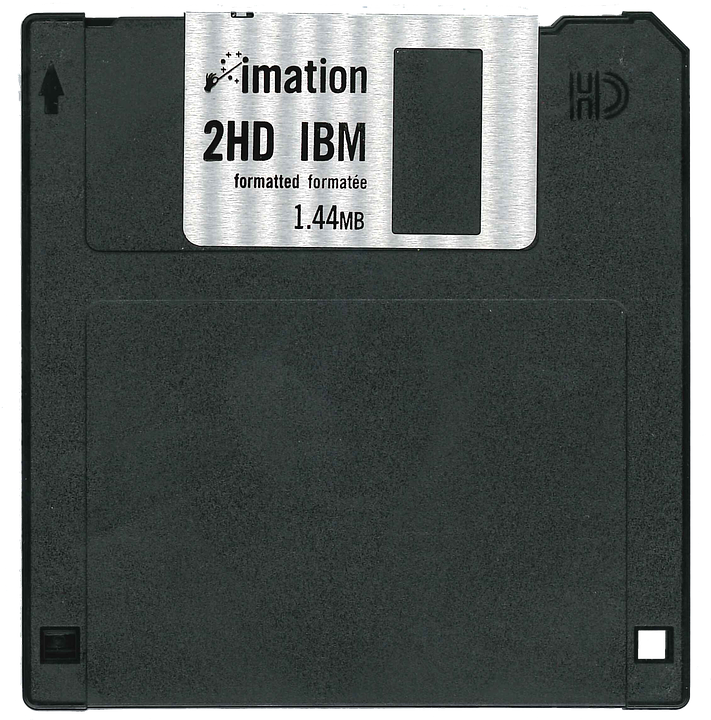Computers make life easier for students in many ways, from user-friendly word processors to the many Weird Wonders of the World Wide Web. Nevertheless, there are occasions when even computer technol- *PFZZZT*

Sorry. Computer crashed there. Like we were saying, sometimes technology fails us. If this occurs after you’ve been toiling away at an essay or presentation for hours and you lose unsaved work as a result, it can lead to unfortunate acts of computer rage.
It’s therefore important to be tech-savvy, since a little knowledge can save a lot of hassle in the long run. Try using the following tips to avoid data-based despair.
1. Save Your Work Regularly
Apologies if this sounds obvious, but it’s a really good idea to save your work frequently. It’s true that many programs come with an auto-save function, and you should configure your preferences to auto-save regularly, but these features only save work in the event of a crash.
It’s equally vital to save your work manually. Ideally, you should have at least two saved copies of the same document at any time (in case you accidentally overwrite one of them).
For longer documents, like dissertations, you may even want to save each draft as a separate file so you can go back to older versions if the need arises.

2. Back Up Important Files
As well as saving multiple copies of the document you’re currently working on, it’s crucial to create a backup of your computer files on a consistent basis. This includes not only your university work, but also music, photographs and anything else you consider important.
Find this useful?
Subscribe to our newsletter and get writing tips from our editors straight to your inbox.
How often you should do this depends largely on how inconvenient losing information would be. If losing the last month’s work would be unbearable, make sure you back stuff up at least once every month; if losing even the last day’s work would be a catastrophe, making daily backups is advised.
3. Use Multiple Backups
But where should you back up your data? In as many places as reasonably possible! Creating multiple backups – for instance, via a cloud service, on your university server and on an external hard drive – will ensure that you can always recover important data when required.
As well as digital services and external hard drives, you can back up important data on media such as USB sticks, CDs and DVDs. You can even use floppy disks if you’re going for retro charm over practical utility.

4. In an Emergency, Use Data Recovery
Sometimes, such as when attempting to write up an essay in the bath, disaster will strike and your beloved computer will shuffle off to join its predecessors in silicon heaven.
When this happens, you’re boned without a backup, right? Not necessarily, since data recovery services can retrieve files even from damaged hard drives. This can be expensive, though, so remember to check your options with the university IT department first.



